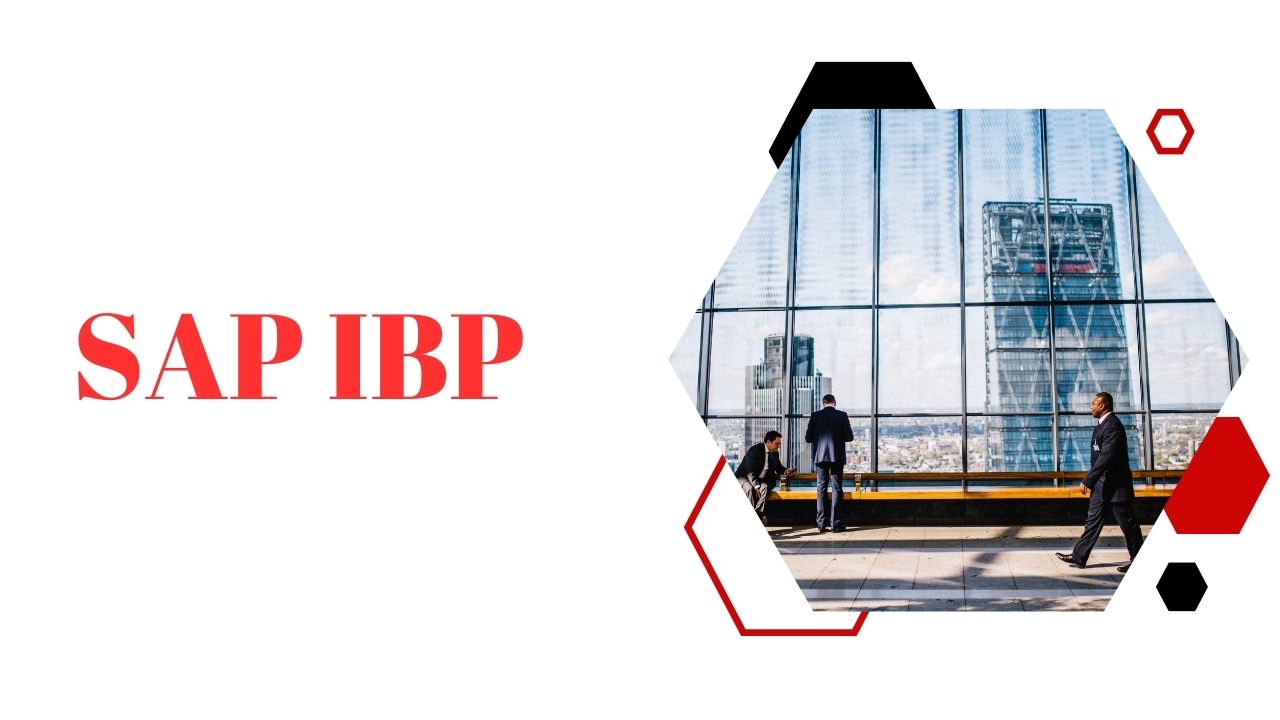In today’s fast-paced business environment, effective supply chain management is critical for maintaining a competitive edge. SAP Integrated Business Planning (IBP) is a powerful, cloud-based solution that brings agility and precision to supply chain planning. Designed to meet the dynamic needs of modern businesses, SAP IBP Training integrates processes like demand forecasting, inventory optimization, supply planning, and sales & operations planning (S&OP), enabling companies to streamline their supply chain operations and respond swiftly to market changes.
What is SAP IBP?
SAP IBP is a suite of tools that empowers businesses to manage and optimize their end-to-end supply chain processes. With modules like Demand Planning, Inventory Optimization, Response and Supply Planning, and S&OP, SAP IBP provides a comprehensive framework for aligning supply chain activities with business goals. Built on the SAP HANA platform, SAP IBP offers real-time data processing, advanced analytics, and machine learning capabilities, allowing companies to make informed decisions based on accurate and up-to-date information.
Key Features of SAP IBP
-
Demand Planning
SAP IBP’s Demand Planning module uses advanced analytics and machine learning to improve demand forecasting accuracy. This module enables businesses to generate reliable forecasts, anticipate market trends, and adjust their strategies proactively. -
Inventory Optimization
The Inventory Optimization module helps companies balance inventory levels, reduce carrying costs, and improve service levels. By optimizing stock across the supply chain, businesses can ensure that products are available where and when they’re needed without overstocking. -
Response and Supply Planning
This module enables organizations to plan supply and allocate resources based on demand fluctuations. It allows businesses to quickly adjust production schedules, manage constraints, and optimize supply based on real-time demand insights. -
Sales and Operations Planning (S&OP)
S&OP in SAP IBP integrates supply chain planning with financial and business planning, ensuring alignment between supply and demand. This module facilitates collaboration between departments, helping teams to make coordinated decisions that support business objectives. -
Analytics and Machine Learning
With SAP IBP’s analytics and machine learning capabilities, companies can analyze historical data, identify patterns, and gain insights to drive strategic decisions. Machine learning models improve forecast accuracy and support continuous process improvement.
Benefits of SAP IBP
- Enhanced Forecast Accuracy: With advanced analytics and machine learning, SAP IBP improves forecast accuracy, helping businesses anticipate demand and manage resources efficiently.
- Improved Collaboration: SAP IBP fosters cross-functional collaboration by aligning supply chain planning with business goals, allowing teams to work toward shared objectives.
- Increased Agility: Real-time data processing enables rapid response to changing market conditions, giving businesses the agility to adapt quickly.
- Cost Optimization: By balancing inventory and optimizing resource allocation, SAP IBP helps companies reduce excess stock and minimize carrying costs.
- Better Decision-Making: With centralized data and advanced analytics, SAP IBP empowers decision-makers to make informed, data-driven choices.
Why is SAP IBP Important for Today’s Businesses?
With supply chains becoming increasingly complex, traditional planning tools may fall short in providing the speed and accuracy that businesses need. SAP IBP’s cloud-based, real-time platform provides a unified view of the supply chain, integrating data from multiple sources and making it accessible to all stakeholders. In industries like retail, manufacturing, and logistics, SAP IBP enables organizations to predict trends, reduce costs, and maintain operational stability—key advantages in today’s competitive landscape.
Getting Started with SAP IBP
Implementing SAP IBP requires a strategic approach, often involving collaboration between supply chain, finance, and IT teams. To maximize the solution’s value, many companies start by identifying specific business needs and then tailoring SAP IBP modules accordingly. SAP offers certifications and training programs for professionals looking to gain expertise in SAP IBP, providing valuable knowledge on configuration, data integration, and optimization.
Conclusion
SAP IBP is revolutionizing supply chain planning by providing businesses with the tools they need to stay competitive, agile, and customer-focused. By integrating planning processes, enhancing collaboration, and using real-time data, SAP IBP enables companies to turn their supply chains into powerful strategic assets. Whether you’re looking to optimize inventory, improve forecasting accuracy, or ensure alignment across departments, SAP IBP offers a comprehensive, future-ready solution for supply chain excellence





